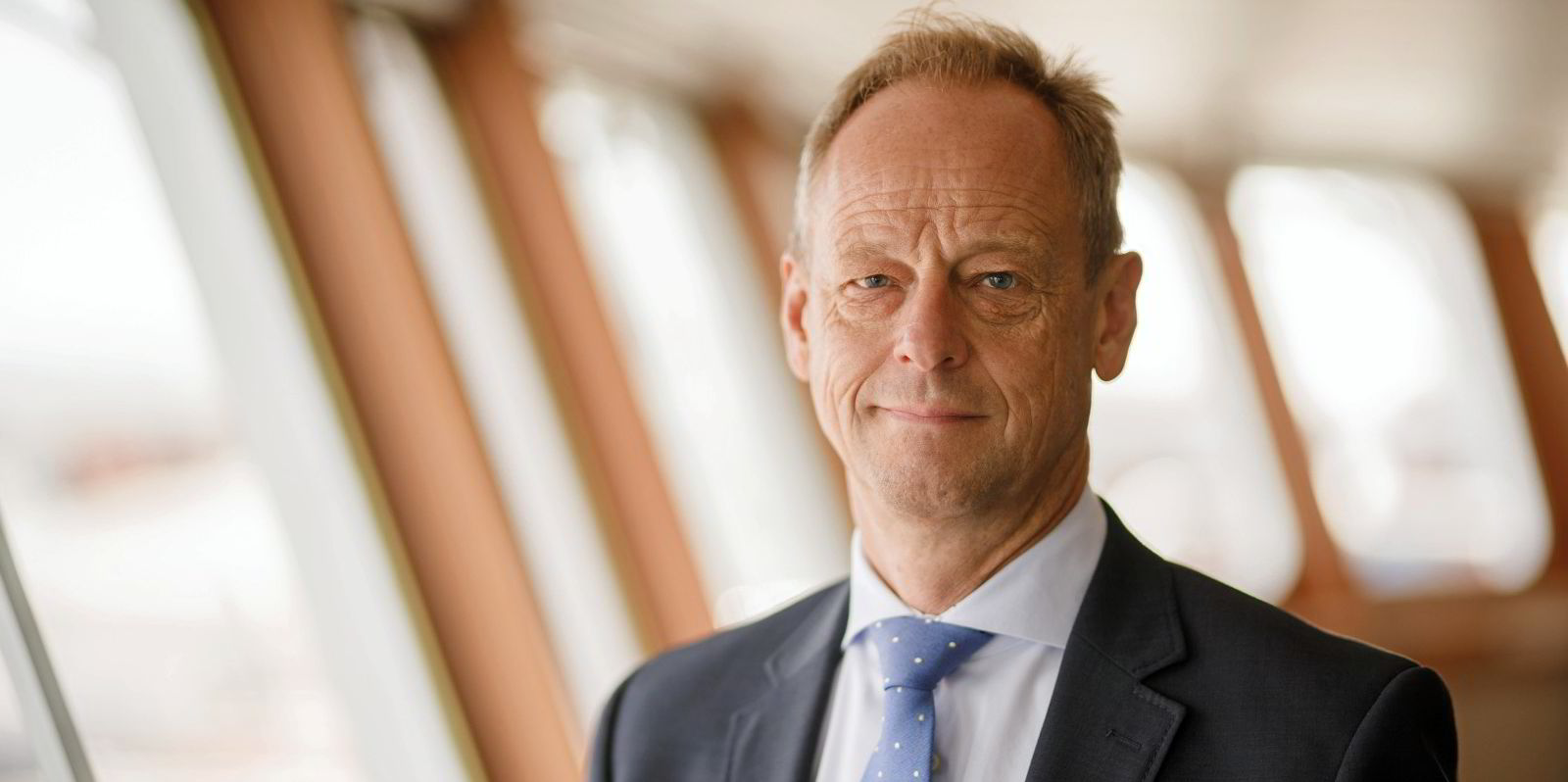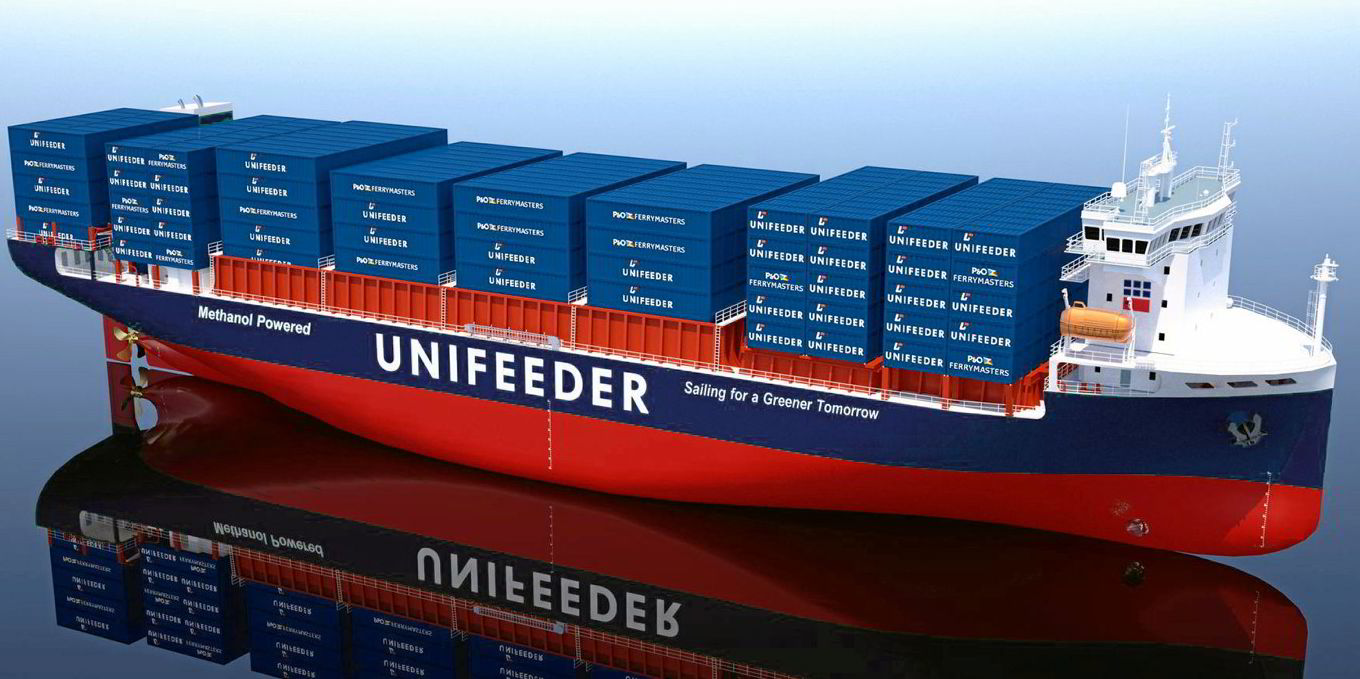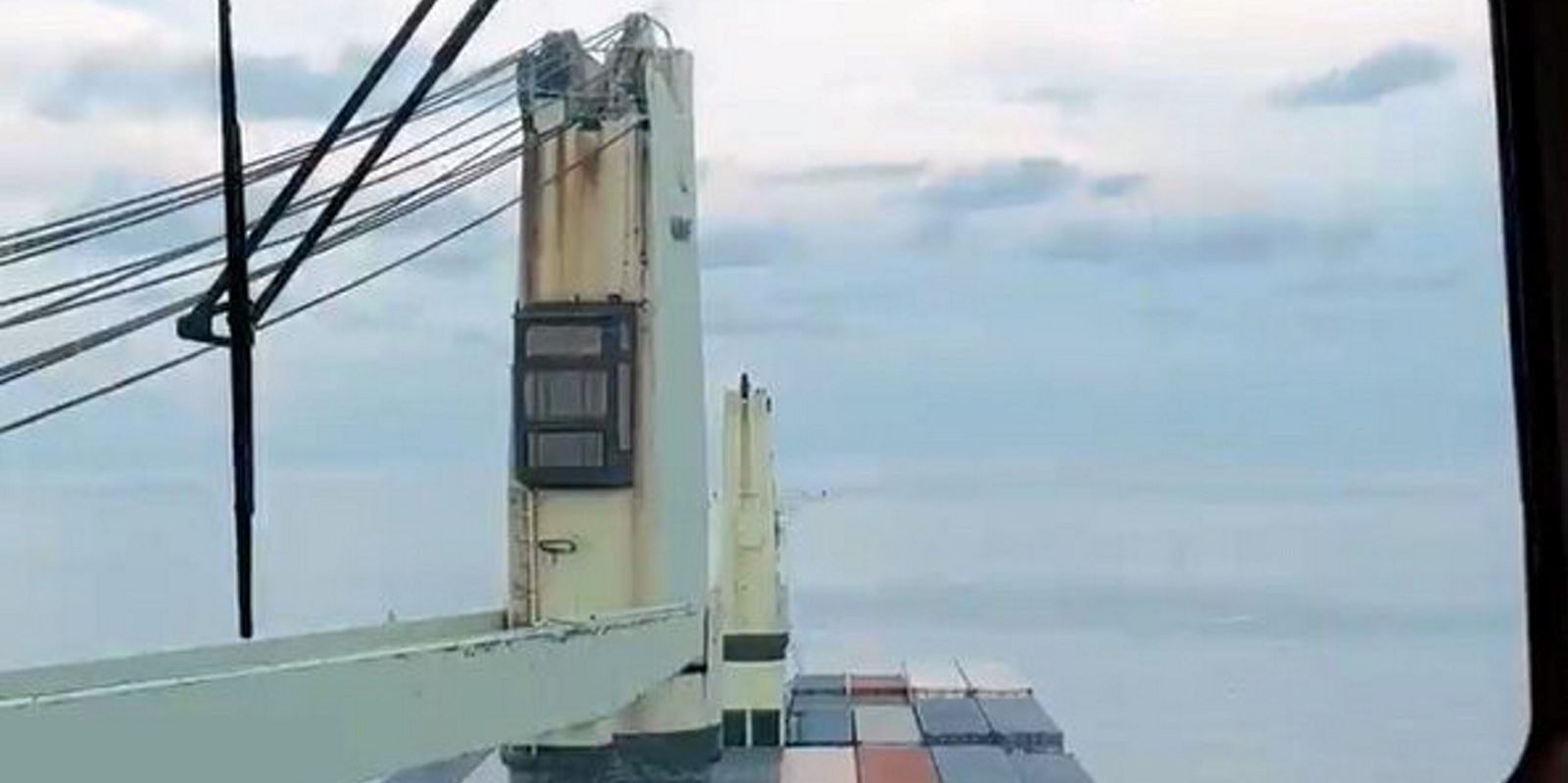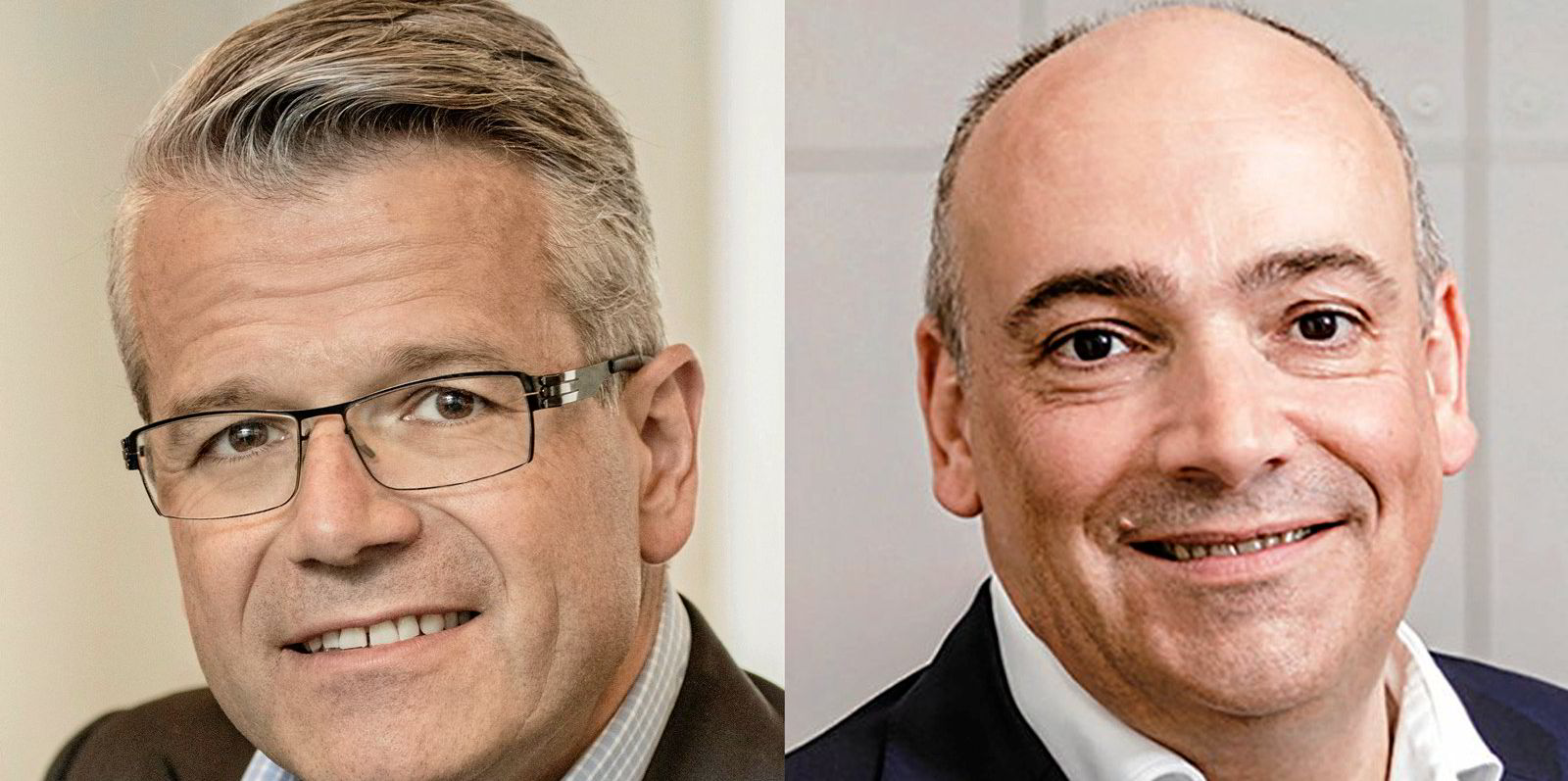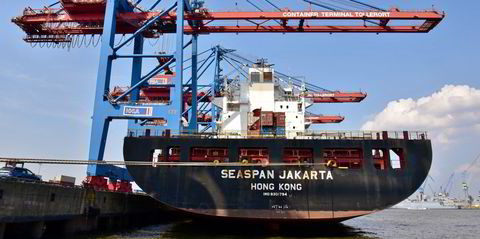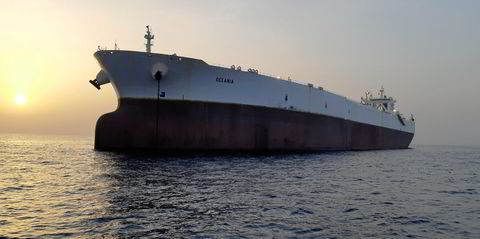Dubai-based container feeder operator Unifeeder Group is using its size and influence as a catalyst to speed up the green transition in the container feeder sector.
To do that, it is making more use of long-term charters than it would normally do.
“We have to take positions on vessels that are being built before we really know who is going to pay for this,” group CEO Jesper Kristensen told TradeWinds.
The DP World-owned company has committed to seven-year charters of four 1,250-teu methanol-powered vessels for delivery in 2026.
These are being built at shipyards in China, three for Germany’s Elbdeich Reederei and one for MPC Container Ships.
The company has fixed another four conventional-powered vessels of 3,000 teu on five-year charters.
These are slated for delivery in the coming months from Denmark’s Celsius Shipping.
The contracts differ from the shorter-term, flexible charters that account for most of the Unifeeder fleet.
“There’s nothing changed in the basic business model in terms of being asset-light and agile as a fundamental to the Unifeeder business,” Kristensen said.
“But we also have an obligation to do something on the decarbonisation journey,” he said.
Unifeeder will use its position as one of the world’s largest feeder operators to accelerate decarbonisation.
Acceleration strategy
It hopes that its backing for methanol-powered vessels will add momentum towards the use of technology, fuel and vessels.
That involves taking a “leap of faith”, which involves a risk down the line, Kristensen acknowledged.
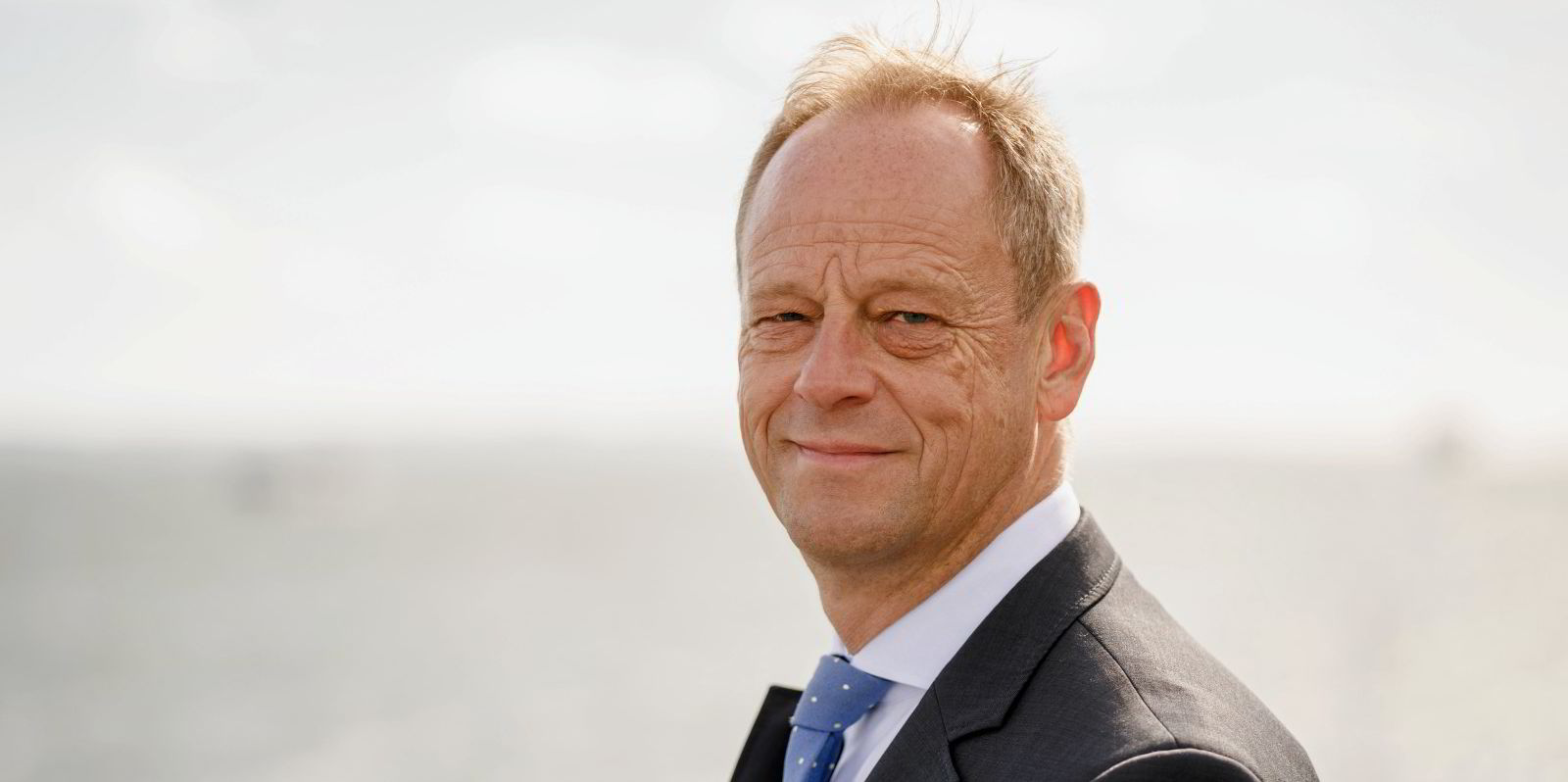
“We will have to kind of hope, and work for, that eventually there is a market for this.
“And when you lean in like that, you can’t lean in with a traditional charter of six, nine or 12 months. It won’t fly.
“Nobody will lean in together with you on that basis.
“So, therefore, you need to do a little bit differently and there you have to take a commitment.”
Unifeeder is also taking a punt on whether shippers will pay for the extra cost of green container transportation.
That is proving hard, as shippers are unwilling to put their money where their mouths are.
“The willingness to pay is easy to get as long as you don’t have to do it,” Kristensen said.
“It gets more and more difficult the closer you get to the day where the money has to flow.”
He believes this will be helped with the implementation of a carbon tax.
Yet Kristensen was less confident about where Unifeeder would be procuring the supply of green methanol for the four ships.
He does not know where it will procure the zero-carbon fuel — a dilemma shared by all liner operators.
Kristensen added that even running the ships on low sulphur fuel was “still better than using the traditional vessels that we’re using today”.
While taking a small part of its fleet on long-term charter might reduce flexibility, Unifeeder is confident that a home will be found for the ships.
The ice-class status of the smaller methanol vessels indicates a potential for Baltic and North European trades.
The Celsius ships were taken on long-term charters for different reasons.
They were fixed because of their efficiency for specific trades east of Suez.
Kristensen described the trade between India and the United Arab Emirates Gulf region as super-competitive, requiring vessels with a high level of efficiency for both regional and feeder cargoes.
The market for feeder services remains as strong as ever, while the changing structure of some liner alliances is positive for the business, he believes.
These include plans by AP Moller-Maersk and Hapag-Lloyd to form the Gemini partnership to reduce port calls and focus on mega-hubs.
Distribution network
That will likely mean “an increased focus on ‘hub and spoke’ will increase the demand for doing relay or feedering”.
Moreover, geopolitical events have provided more stimulus.
The Red Sea crisis has shown the value of feeder services by giving lines the ability to adjust and react to rapidly changing cargo flows.
“A certain amount of chaos, a certain amount of unpredictability, a certain amount of volatility, that’s good for feeder and shortsea solutions,” Kristensen said.
He says he does not distinguish between a feeder and a regional vessel. “My argument on that is that there is actually no feeder ship.”
